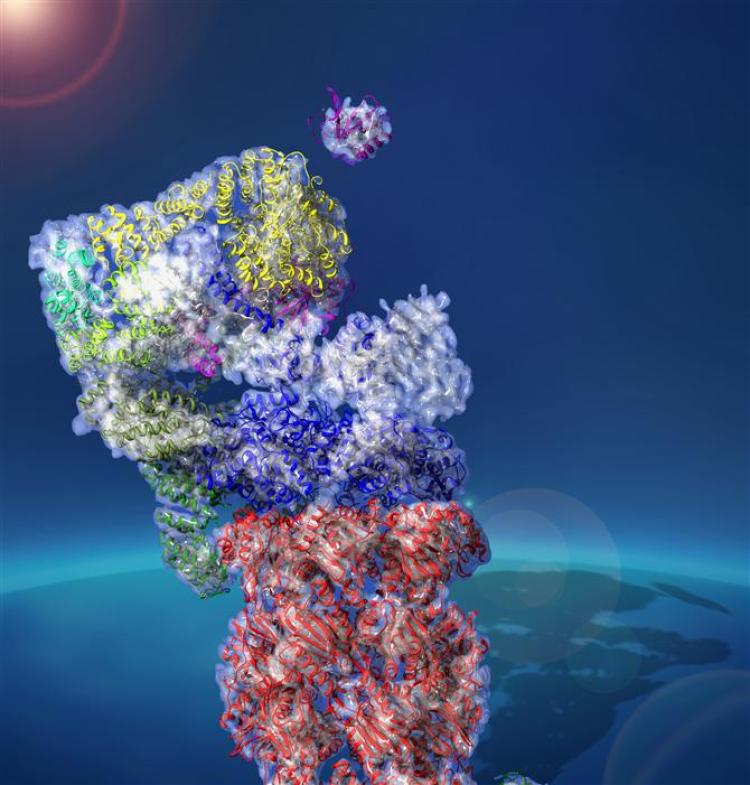$5 million Titan Krios microscope will advance biomedical, life science research

The Titan Krios Cryo-Electron Transmission microscope, which measures over 8 feet tall and weighs in at more than 2,000 pounds, is considered state-of-the-art in life sciences and structural biology research, allowing scientists to image individual molecules with more detail and precision than ever.
“In order to understand the mechanisms of cells, all of which have evolved to do highly specific tasks, we need to know what the machines inside them look like,” said Karolin Luger, the endowed chair of CU Boulder’s Department of Biochemistry and a Howard Hughes Medical Institute (HHMI) Investigator. “We can now see the assembly as it happens.”
The Krios microscope has been used to advance a number of biomedical fields in recent years, including cancer research. The device fires streams of electrons at cellular samples that have been frozen in vitrified states, then pieces together multiple 2D images to create a 3D rendering of an individual molecule’s unique variations.
The purchase was supported by a $5 million award from HHMI, which currently funds four Investigator positions at CU Boulder. The College of Arts and Sciences, the Office of the Provost and the Research and Innovation Office will provide substantial support in the form of a camera, as well as infrastructure, renovations and service contracts.
“This investment keeps CU Boulder at the forefront of life sciences research, where we have been for many years,” said Professor James Goodrich, chair of the Department of Biochemistry, which will manage the microscope’s operations. “It’s a transformational asset that will benefit not just the university, but other institutions across the state and region as well.”
The device will reside in a temperature-controlled laboratory in CU Boulder’s Sustainability, Energy and Environment Laboratory (SEEL) building on east campus. 17 labs from across the university plan to use the microscope in some capacity, including many from Biochemistry and the Department of Molecular, Cellular and Developmental Biology.
“We are thrilled to have this capability here on campus and our students are excited to peer closely at the cellular machinery that forms the foundation of life as we know it,” Luger said.


